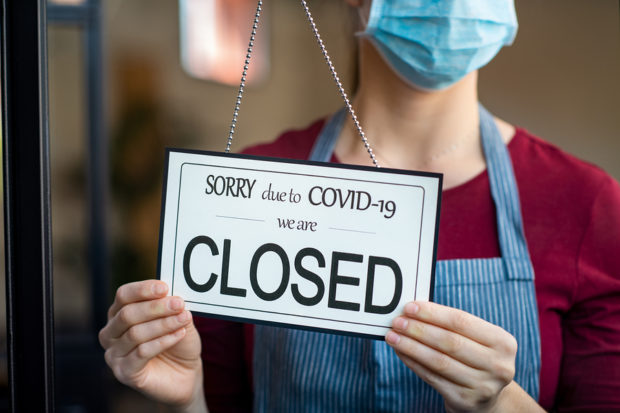A Western Pennsylvania federal district judge has dismissed eight cases seeking payment for COVID-19 business interruption coverage from several insurers including Cincinnati Insurance, Travelers Insurance and Hartford. Financial Services.
Citing the district’s court’s own previous ruling in 30 cases against Erie Insurance, as well as rulings by many other courts around the country, U.S. District Judge Mark R. Hornak found COVID-19 and related shutdowns by government orders did not cause “physical” change to the businesses’ properties as claimed
Plaintiffs in these cases included dental practices, restaurants, minor league baseball organizations and a salon. Judge Hornak wrote that their claims are “far from unique, as they “mirror those asserted by business owners in thousands of similar cases nationwide” where courts have denied them because there was no evidence of direct physical loss or damage as required under the policies.
Here, too, the plaintiffs alleged that insurers wrongfully denied them coverage under the business income, extra expense, civil authority and dependent property coverage provisions within their commercial insurance policies. The primary dispute was whether COVID-19 and the shutdowns caused “direct physical loss or damage” to covered property.
The judge noted that while neither the Pennsylvania Supreme Court nor the U.S. Third Circuit Court has decided a COVID-19 business interruption insurance coverage case, the Third Circuit has weighed in on similar claims related to asbestos. Also, several federal district courts within the Third Circuit that have decided COVID-19 cases have dismissed claims like those of these plaintiffs, concluding that neither the COVID-19 virus nor the mandated shutdown rules cause “direct physical loss of or damage to” property. Noting that this finding is in agreement with the majority of decisions in COVID-19 business interruption insurance cases throughout the country, the judge said the plaintiffs have not demonstrated that their claims should be decided differently.
The judge acknowledged the plaintiffs’ characterization that the COVID-19 virus is “like leaking gasoline, released asbestos fibers, E.coli contamination, or ammonia” and thus dangerous to those who encounter it. But the judge noted that a significant number of properties such as grocery stores or hospitals that remained open throughout the pandemic were just as likely as these plaintiffs’ properties to have been impacted by the SARS-CoV-2 virus and yet they never ceased to function or to be inhabited. Like the plaintiffs, these properties employed mitigation efforts including mask wearing to slow the spread of COVID-19, but the virus did not harm those properties in a way so as to generate a loss of or to the property itself.
The judge also rejected the plaintiffs’ conclusion that the shutdowns demonstrated that COVID-19 rendered property “so dangerous such that it was unusable and uninhabitable.” The shutdowns were not issued in response to COVID-19’s presence at any of the plaintiffs’ properties—unlike government orders requiring asbestos abatement at a particular property at which asbestos fibers are present, for example, the opinion noted.
In one case, a dentist argued that the virus is “nearly impossible” to eradicate because while some cleaning products will both inactivate and remove COVID-19 from surfaces, the virus is not visible to the human eye, making it extremely difficult to locate all contaminated surfaces. But the court said this assertion demonstrates that the virus particles can be readily removed, thus returning the property to its original condition as soon as the property owners undertake simple remedial actions in advance of its natural dissipation. The court also noted that the virus dissipates on its own within weeks.
*This article was originally published by Insurance Journal, CM’s sister publication.





















 Earnings Wrap: With AI-First Mindset, ‘Sky Is the Limit’ at The Hartford
Earnings Wrap: With AI-First Mindset, ‘Sky Is the Limit’ at The Hartford  Nearly 26.2M Workers Are Expected to Miss Work on Super Bowl Monday
Nearly 26.2M Workers Are Expected to Miss Work on Super Bowl Monday  Experts Say It’s Difficult to Tie AI to Layoffs
Experts Say It’s Difficult to Tie AI to Layoffs  What Analysts Are Saying About the 2026 P/C Insurance Market
What Analysts Are Saying About the 2026 P/C Insurance Market 


